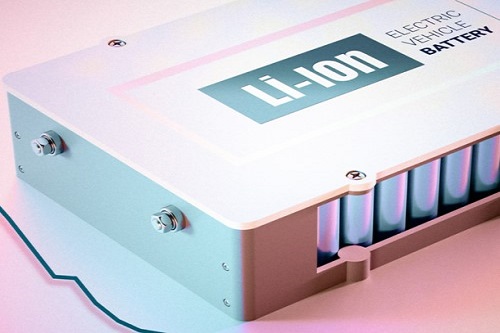Lithium-Sulfur Vs. Lithium-Ion Batteries

Join Eric Smith at Stanford Advanced Materials. He discusses with Dr James Harper the differences between lithium‑sulfur and lithium‑ion batteries. This session examines the operating principles of both battery types. It details quantifiable performance advantages. It identifies technical challenges in current applications.
Potential benefits of lithium‑sulfur batteries include enhanced energy density and reduced weight. These features could improve performance for electric vehicles and other applications. Conversely, lithium‑ion batteries are noted for operational reliability and durability. Dr James Harper presents data‐driven observations on the future of energy storage.
If further information on advanced battery materials is required, send an enquiry. Alternatively, connect with us via social media for additional details.
Welcome to Stanford Advanced Materials! I’m your host, Eric Smith. Today, we’re diving into the world of batteries with a focus on lithium-sulfur and lithium-ion technologies. To help us navigate this topic, we’re joined by Dr. James Harper, an expert in battery technologies. Dr. Harper, thanks for being here!
Thank you, Eric. It’s great to be here.
Let’s start with the basics. What exactly are lithium-ion batteries and how do they work?
Lithium-ion batteries are a common power source for many electronic devices. They work by moving lithium ions between two electrodes—one positive, called the cathode, and one negative, called the anode. This movement of ions generates electrical energy. Their high energy density, long cycle life, and relatively light weight make them a popular choice for electric vehicles and other applications.
And what about lithium-sulfur batteries? How do they differ from lithium-ion batteries?
Lithium-sulfur batteries use sulfur as the cathode and lithium metal or ions as the anode. They have a higher theoretical energy density compared to lithium-ion batteries, which means they can potentially store more energy in the same space. Additionally, sulfur is lighter and cheaper than materials used in lithium-ion batteries, like cobalt.
That sounds promising. What are some of the main advantages of lithium-sulfur batteries over their lithium-ion counterparts?
Lithium-sulfur batteries offer several advantages. They have a higher energy density, which means longer driving ranges for electric vehicles. They are also lighter, which improves overall vehicle efficiency. The potential for faster charging is another key benefit, addressing range anxiety for EV drivers. Additionally, sulfur is more affordable and environmentally friendly compared to some materials used in lithium-ion batteries.
Are there any downsides to lithium-sulfur batteries that we should be aware of?
Yes, there are a few challenges. Lithium-sulfur batteries traditionally have a shorter cycle life due to issues like the dissolution of sulfur in the electrolyte. Safety can also be a concern, as lithium-sulfur batteries can have stability issues. Researchers are working to address these problems to make the technology more reliable.
Interesting. How do you see the future of lithium-sulfur batteries evolving?
The future looks promising as ongoing research aims to improve the cycle life and safety of lithium-sulfur batteries. With advancements in technology, they could become a more viable alternative to lithium-ion batteries, especially as we move towards more sustainable and efficient energy solutions.
Thanks for sharing your insights, Dr. Harper. It’s clear that lithium-sulfur batteries have a lot of potential for the future of electric vehicles and other applications.
It’s been a pleasure, Eric. I’m excited to see where this technology goes.
To our listeners, thank you for tuning in to Stanford Advanced Materials. If you enjoyed today’s discussion, make sure to subscribe for more updates on cutting-edge technologies and materials. Until next time, keep exploring the fascinating world of advanced materials!

 Bars
Bars
 Beads & Spheres
Beads & Spheres
 Bolts & Nuts
Bolts & Nuts
 Crucibles
Crucibles
 Discs
Discs
 Fibers & Fabrics
Fibers & Fabrics
 Films
Films
 Flake
Flake
 Foams
Foams
 Foil
Foil
 Granules
Granules
 Honeycombs
Honeycombs
 Ink
Ink
 Laminate
Laminate
 Lumps
Lumps
 Meshes
Meshes
 Metallised Film
Metallised Film
 Plate
Plate
 Powders
Powders
 Rod
Rod
 Sheets
Sheets
 Single Crystals
Single Crystals
 Sputtering Target
Sputtering Target
 Tubes
Tubes
 Washer
Washer
 Wires
Wires
 Converters & Calculators
Converters & Calculators
 Write for Us
Write for Us
